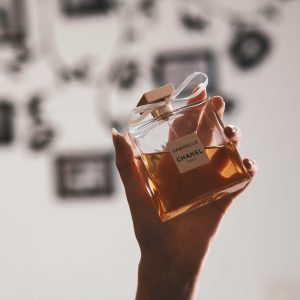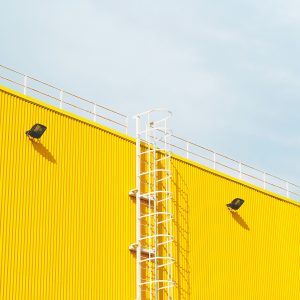Why Waterproof Wiring Connectors Are Essential
Electrical wiring that’s exposed to the elements could be damaged, causing shorts or fires. This is why waterproof wiring connectors are essential.
Waterproof electrical connectors create a seal around the connection point, preventing moisture from damaging the wires. They also provide enhanced durability and longevity, especially in harsh environments.
Moisture Resistant
Waterproof wire connectors create a tight seal and use resilient materials to keep moisture out of electrical connections. This feature makes them ideal for outdoor applications and marine environments where moisture, dust, and other harsh conditions can damage or short out wires.
Many waterproof connectors have a high IP rating, which indicates the level of waterproof wiring connectors protection they offer against liquids and debris. When shopping for a waterproof electrical connector, be sure to check its IP rating to ensure it will provide adequate protection in your specific application.
Waterproof connectors are also designed to resist corrosion and other environmental hazards, such as industrial fluids and chemicals. These features help reduce downtime and maintenance costs by extending the lifespan of your connectors.
The durable design and materials used to make waterproof electrical connectors also allow them to withstand extreme temperatures, ensuring they will perform optimally in challenging environmental conditions. These factors, along with their sealed and secure design, increased durability, and cost savings, make them the ideal choice for demanding applications.
For easy installation and maintenance, choose a waterproof electrical connector that comes pre-assembled with your wire leads installed. This will save you time and effort during assembly and prevent errors that can occur with mated connectors that are not properly secured. Also consider a waterproof connector with a variety of termination methods, such as crimping or soldering, to suit your system’s needs.
Corrosion Resistant
Corrosion is a big concern in many electrical systems. It can destroy custom cable assemblies, erode metal parts, stifle current flow and create short circuits that leave projects vulnerable to failure and costly downtime. Waterproof connectors help combat corrosion by forming a seal around the connection point, stopping moisture from getting in and corroding wires or connections.
These connectors are also designed to withstand harsh environmental conditions, including scorching heat, freezing temperatures and other extremes. They are often made with robust materials that can withstand exposure to industrial fluids and other corrosive elements, ensuring they perform optimally in tough environments.
Waterproof connectors come in a variety of sizes, allowing them to be used in a wide range of applications. They are commonly found in marine, automotive, outdoor and industrial settings. They are also an ideal choice for any application that requires a durable, waterproof connection in wet environments, such as garden irrigation, electrical installations in boats and recreational vehicles and more.
Waterproof connectors can be installed in a number of ways, depending on the type and size of cable or wire to be joined. Most come with an installation guide that details the steps required. If no guide is provided, there are plenty of easy-to-use products available on the market, such as waterproof electrical tape, silicone sealant and adhesive lined heat shrink tubes.
Extreme Temperature Resistant
Waterproof connectors prevent moisture from infiltrating electrical connections, which reduces the risk of short circuits and corrosion that may lead to electrical failures. They also protect the wires and cables from other elements, such as dirt or dust, and can withstand a wide range of temperatures.
These features make waterproof connectors ideal for a variety of applications. For example, industrial connectors with a waterproof seal can help keep 1 pin electrical connector electrical signals and power from being disrupted by debris in tough environments and automated systems. Additionally, these connectors can resist abrasion and impact. They also have a high IP rating that helps them resist dust and long-term immersion in water.
Some waterproof connectors are easy to install and can be used by people without much experience in electronics. For instance, MUYI electrical wire connectors are designed for simple installation and can be used to secure connections in various vehicles.
Other types of waterproof wiring connectors include crimp-style and solderable splices that are secured by inserting the wires and applying heat. When you use these types of waterproof connectors, you must ensure that the exposed ends are free of dirt and debris. You should also select a waterproof connector that has an inspection window to check the integrity of the connection before using it in harsh conditions. Lastly, you should apply a thin layer of liquid electrical tape, self-fusing silicone tape, or an adhesive-lined heat shrink tube over the exposed end to further waterproof it.
Moisture-Resistant Contacts
When exposed to moisture, electrical contacts can lose their conductivity and lead to short circuits and system failures. Waterproof connectors help to prevent this by forming a tight seal around the connections, ensuring that they stay dry and secure. This helps to minimize the cost of repairs and downtime as well as improving safety.
In addition, waterproof wiring connectors feature durable materials that can withstand harsh conditions and other factors that could damage or compromise their performance. For example, many of these connectors are rated IP68 and provide protection against dust, short- and long-term submersion in water, and even high-pressure water flow. This means that they can be used in rugged industrial environments, automated systems, and marine applications.
In order to ensure that these connectors can withstand the challenges of harsh environmental conditions, they must pass the MIL-DTL-3885 Method 4.6.4 moisture resistance test. This test is designed to evaluate the ability of wire and cable connectors to perform in wet environments by assessing their resistance to moisture, humidity, contaminants, and electrical shocks. The test is conducted by conditioning the connectors in a controlled environment at a certain temperature and humidity level, and then measuring their conductivity and mechanical integrity after the specified time period. In addition, the test also measures the sensitivity of the connectors to corrosive chemicals and other substances that may be found in wet environments.



